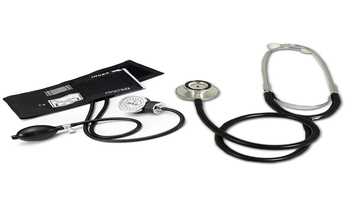What are the duties of a nurse in Ghana?
Nurses are generally known as people who take care of the sick and aged in the society. However, there is a possibility that people have not really understood the duties of a nurse in Ghana properly. Is it true that a nurse is confined to offering healthcare services in the hospital alone? What does a nurse do on a typical day? It is such concerns that need to be addressed if you are to appreciate the work that these selfless individuals do. Nurses are a crucial component of the healthcare system as they help make patients get better, not to mention the assistance they give to doctors.

Source: UGC
So, what exactly does a nurse do? It is likely that people have the wrong notion about what these caregivers do on a daily basis. While others think the professional is supposed to wash patients and feed them, there are those that think that their role is to treat the sick. What exactly is caregiving when it comes to nursing? This is probably the biggest question anyone should ask. To be clear, the following is a breakdown of the expected duties that a nurse must carry out in Ghana and beyond.
Duties of a nurse
Before getting into the details of the caregiver's roles, it is important to know that a nurse is a health practitioner whose primary role is to offer help to the sick and injured whose optimal functioning is incapacitated by one reason or another. This said, this expert can therefore do this by:
- Using their acquired knowledge to meet the needs of patients. This may involve assessment of problems and coming up with an effective caregiving plan.
- Focusing on advising patients to meet overall/general health care goals.
- Being part of a healthcare team and system by performing outlined functions as a nurse.
- Contributing and promoting health services in the community, managing and recognizing patients that need help within the society.
- Carrying out health needs as planned and identified by the community.
- Being an excellent administrator which helps facilitate the proper running of healthcare units.
- Offering nursing interventions by demonstrating critical thinking and problem solving skills.
- Being responsible and accountable for their professional actions.
- Assisting in the generation of evidence based research and using the same to procure solutions.
Going by the above roles, it is easy to see that these health workers have been underestimated as many people confine them to hospitals and taking care of the sick only. Clearly, the roles of these health professionals are diverse and equally important. However, there may be distinctions between the different nurses in hospitals based on their working stations.
Different types of nurses and their roles
Nurses may share a few traits and processes but they do not work in the same area, even in the same hospital. This may bring in a few aspects of differences that are unique to their work. As such, we shall look at the different types of nurses in hospitals and their specific roles there.
1. Emergency room caregiver
This caregiver will definitely be dealing with a lot of pressure as this is a high-end stress level area in the hospital. The role here is to help stabilize and treat patients from accidents and trauma before they can be hospitalized or discharged. They work with other team members in the emergency response unit including doctors and aides.
READ ALSO: Midwifery Council honour nurse for delivering baby on a bus
2. ICU registered caregiver

Source: UGC
This one has a major role which is to care for patients in the Intensive Care Unit (ICU). They are often called the critical care nurses whose credential is often very high compared to others. Most hospitals will only take ICU caregivers with Bachelors of Science degrees in Nursing since they have had proper training in caring for highly sensitive patients.
3. Neonatal caregiver
These are responsible for taking care of babies born with defects. They need to attend to babies with heart problems, premature babies, as well as those born with certain birth defects. These nurses may also have to teach the mothers how to take special care of the babies before they are discharged from hospital.
4. Oncology nurses
The professionals here will work directly with cancer patients. They are responsible for ensuring that these patients are well taken care of and are as comfortable as possible. They are responsible for administering chemotherapy and other cancer-related treatments, not to mention monitoring the sick. To be able to work in this department, just like the ICU, a nurse needs to have a Bachelors in Nursing degree as well as other relevant credentials. This is because of the specialized care that must be given in these areas.
5. Nursing researchers
The nurses here are those that focus is on scientific research of ailments with the aim of coming up with solutions that will offer better care to clients. You must be an RN to get grants, publish papers, and even collect and analyse data as well as presenting it. This is one of the most crucial sectors in the nursing field as it helps better the procedures involved in caregiving, especially with certain ailments.
6. Licensed practical caregiver
This one works under the supervision of a supervising Registered Nurse (RN). You can become one by gaining a practical nurse's diploma. These are probably the experts most people are accustomed to. Their roles involve checking vitals, administering injections, and giving sick people medicine.
7. Nurse midwife
This is actually one of the senior-most nurse in the healthcare system. He or she coordinates care given to expectant mothers, helps in the delivering process, and is involved in the after-birth caregiving procedures for both the mother and child. To qualify for such a position, you must be well experienced in neonatal care, labour and delivery as well as prenatal care. In addition to that, you must attain a masters degree.
8. Clinical caregiver
This is also a senior nurse whose specialty is in taking care of critically ill patients that need specialized care. This advanced health professional is responsible for diagnosis and treatment of chronic illness such as cancer and heart-related illnesses. For one to qualify to work here, there is the need to acquire masters or bachelors degree in nursing.
9. Registered caregiver

Source: UGC
Next to the licensed practical nurse, registered nurses are also quite common since they work in various sectors of the hospital. The nature of their role is such that they can offer different care services to patients in the hospital. Their most common roles include working with the doctor or physician, helping educate patients on different ways and needs of disease prevention as well as helping to promote health services in the community. With an associate nursing degree, you can become a registered nurse.
10. Orthopedic caregiver
This type of caregiver works with patients whose problems are specifically mu-skeletal. These are patients that suffer from issues such as arthritis and fractures. Their main role is to make assessments and come up with treatment plans. They work with doctors in the operating room and are very instrumental in the patient regaining their mobility and strength.
11. Psychiatric nurse
This one must be certified to offer care to the mentally ill people. They often interact with patients who suffer from mental disorders such as schizophrenia and depression. Their main role is to help patients and families interact since they are well versed in behavioral therapy. These nurses work hand in hand with other experts such as psychiatrists, psychologists, and social workers to better the condition of the sick person.
12. Operating room caregiver
This is the kind that works with surgeons. They are often known as scrub nurses. Their major role is to ensure high quality care before, during, and after surgery. They also care for the patient post surgery. Due to the sensitive nature of their role and the stakes involved, high quality must be maintained hence the need for a minimum Bachelors Degree in nursing as a qualification.
13. Geriatric caregiver
This expert caregiver tasked with the responsibility of being a care giver to senior citizens. More often than not, as people age, certain complications set in. The geriatric nurses may perform general functions but they have special training to take care of the aged.
14. Travel caregiver
This is a person with an adventurous spirit that takes on temporary jobs locally and internationally in order to care for the sick while on the move.
15. Public health caregiver
This one works on healthcare provision that is community specific. He or she works with communities after monitoring various illnesses in the community. Usually, the focus is often on vaccination programs as a preventive measure. The expert may work in municipalities and must be registered and have a degree in Nursing.
16. Flight caregiver
It is important for a patient to receive the right care when being transferred from one place to the other. This is where a flight nurse comes in. He or she ensures that the patient is handed over properly and that they receive the right kind of care while in transit.
17. Pediatric caregiver
This one cares for children, babies, and neonates. They can also provide health care for children below the age of 18 years, meaning that adolescents can also be attended to by them.
With the understanding of the duties of a nurse, you are better placed to appreciate their services. In case you get hospitalized, you will know just who to call and when to call. The services these experts render cannot be taken for granted for it is a great show of sacrifice.
READ ALSO:
- Duties of a nurse in Ghana
- Who is a nurse: types, roles and careers in Ghana
- Pregnant woman loses baby after being neglected at Ejisu Hospital during labour (video)
Source: YEN.com.gh








